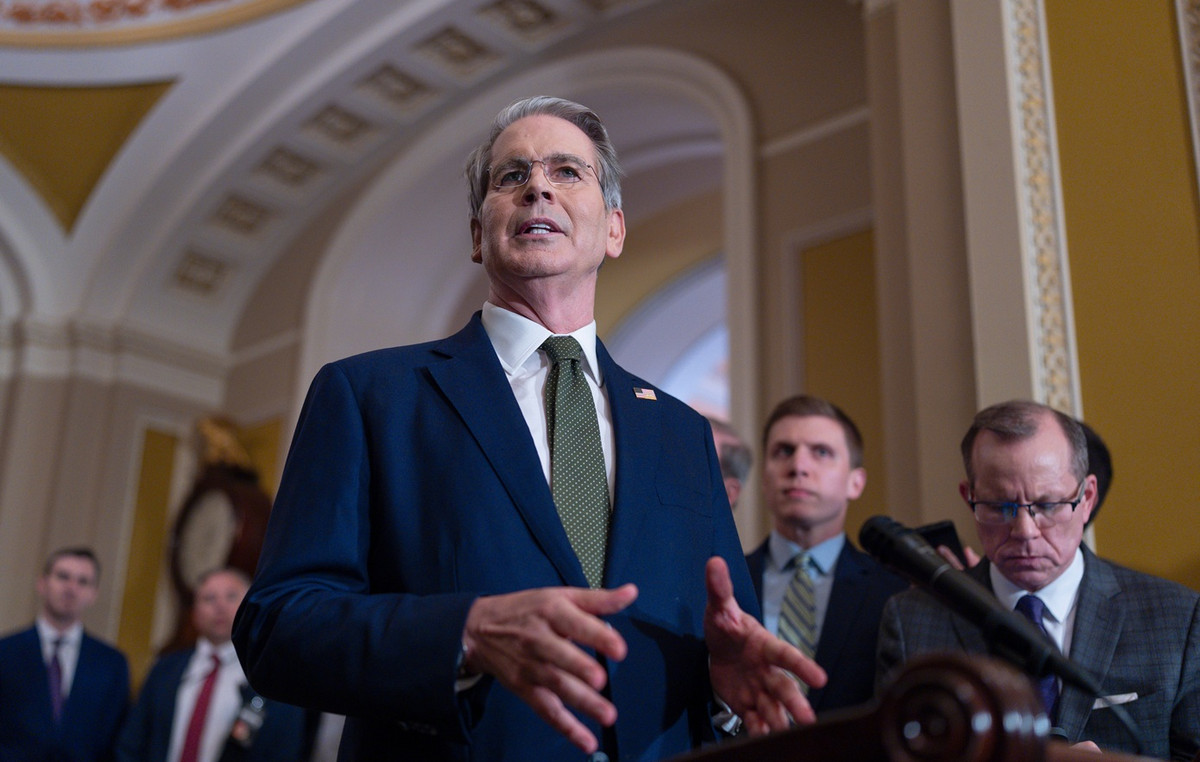Norway on June 11 banned the use of social filters and apps to touch up one’s body. With this arrangement influence e Norwegian celebrities they will no longer be able to retouch the advertising photos posted on their social networks unless the alteration is clearly marked. The change of course in Norway it came about thanks to an amendment to the Marketing Act proposed by a bill from the Norwegian Ministry of Childhood and Family, passed on June 2, which has yet to be ratified by the king.
The goal is to fight the contents that “they play on social insecurity, bad conscience, low self-esteem or contribute to the pressure of the body ». And as the Norwegian ministry said: “It is hoped that the measure will make a useful and significant contribution to stem the negative impact that such advertising has in particular on children and young people”.
In February theASA, advertising standard authority in Gran Bretagna she had already spoken out on the same issue, responding to the campaign #filterdrop, launched by Sasha Pallari, beauty activist, make-up artist and model, banning the use, in social media advertising, of filters that exaggerate the effect of the products. Since then it has become mandatory for influencers in the UK to declare when they use a beauty filter to promote skincare and cosmetics in general, under penalty of exclusion from social media.
https://www.instagram.com/p/CJoXLWKB_5M/
THE FIRST WAS SASHA PALLARI
The makeup artist, curvy model, 29-year-old beauty activist who since 2019 has stopped using filters showing her natural skin, in 2020 in the midst of the pandemic coined the hashtag #fiterdrop by posting a video of herself without filters and inviting his followers to do the same if they had the courage.
Sasha Pallari’s intentions were three: to encourage as many women as possible not to depend on a filter when they want to post a selfie, induce the ASA, to impose the obligation on influencers, cosmetic brands and celebrities to communicate when they use a filter in the promotion of a product, lead to the removal from Instagram of apps that change the characteristics of the face, called by face changing or face morphing.
THE INFLUENCERS WHO HAVE ACCEPTED THE APPEAL
In Italy, ClioMakeUp ruled on the danger of using filters especially for younger people. In a post dated 13 April that portrayed her in the natural, she wrote: «… never before with social media does the comparison become so easy and can lead to obsessions or forms of depression. Sometimes the lightness with which filters are used to improve the face, and also life in general, frightens me ». She is not the only one to champion a true and unaltered face. Among the Italian skininfluecers (i.e. those who are not afraid to show their face not retouched by filters or face morphing apps on social networks), the most followed are the actress Matilda De Angelis and the TV host Aurora Ramazzotti, not influence him Giulia De Lellis who on social media have not hidden their acne.
In the rest of the world the influencer Huda Kattan, make-up artist with over 48 million followers and a globally successful brand, Huda Beauty, he declared on social media with a video, and thinking of his 9-year-old daughter, that he “had enough of an unrealistic standard of beauty fueled by the use of filters and invited influencers celebrities and brands to be transparent when they use them, for the good and the mental health of the new generations “. His message? Stop toxic beauty!
THE EFFECT OF FILTERS ON AESTHETIC MEDICINE
In the UK since 2019, the phenomenon of people who brought their retouched photo to the aesthetic doctor to look like their best selfie had raised alarms. So much so that we started talking about “Snapchat dysmorphia”, which evolved into “selfie dysmorphia” or “filter dysmorphia”. The term was coined by an aesthetic doctor Tijon Esho, founder of the Esho Clinic in London and Newcastle, who had noticed that people who once brought a photo of a celebrity to his studio now propose a photo of themselves modified by Facetune and similar apps as an ideal of beauty, and they are mainly the youngest.
FROM THE NO MAKEUP MOVEMENT TO THE NO FILTER
Stars without make-up who post their natural shots are now countless. An approach, increased in the pandemic, which values authenticity as a way to empowerment. Launched by Alicia Keys who first embraced the claim by being photographed without makeup for a cover of one of her albums in 2016, she is now ready to take a step forward and guarantee a vision of beauty not altered by a filter to protect the younger generations from mental disorders related to insecurities about their physical appearance.
That’s what prompted influencer Shasha Pallari to kick off his campaign, which after winning the ASA, shifted the focus to self-esteem, self-acceptance and self-love. A need that was felt in Norway and which hopefully will also be adopted by other countries.
The forerunner of this approach was the brand Dove who in 2004, for three years in Italy, launched the Self-esteem Project to promote programs aimed at generating change, educating and inspiring girls, towards a broader definition of beauty and helping them to feel more self-confident. Research shows that low self-esteem is an obstacle for young people in their daily life and to rebuild their self-confidence it is necessary to change the most authentic models of beauty, not retouched. With the support of parents, teachers, mentors and youth organizations, Dove offers self-esteem and self-confidence building programs to young people around the world.
PINTEREST AND THE BODY ACCEPTANCE POLICY
According to National Eating Disorders Association (NEDA) e la National Association of Anorexia Nervosa and Associated Disorders (ANAD), since the beginning of the pandemic there has been a dramatic increase in eating disorders associated with the spread of unhealthy eating habits among young people. And today, after 15 months of secluded social life, resuming old habits and starting to meet in person, the pressure of appearing is very strong.
Pinterest, the social network that offers images that are inspiring to create the life you love, he has chosen to embrace a policy that gives space to everyone, regardless of size or build. Concern about appearance is not a priority, which is why it has banned anyone bombarded with weight loss ads on the platform. As of July 1, 2021, Pinterest has updated its ad policies and bans any ads that contain images or phrases related to weight loss.
With this stance, Pinterest is the first among the industry’s leading platforms to ban ads advertising weight loss. A stance that further consolidates the policies that, for years, have prohibited the body shaming and practices or products that are dangerous for weight loss. Weight loss texts or images are banned; testimonials related to weight loss or weight loss products; texts or images that idealize or denigrate certain body types; references to body mass index (BMI) or similar; and any content that suggests you can lose weight with products to wear or apply to the skin. In addition to those just listed, Pinterest had already banned the posting of other types of content, including: pills, supplements or other weight loss products or appetite inhibitors; before-after pictures about weight loss; practices for burning fat or losing weight such as liposuction; body shaming with images or phrases that mock or discredit certain body types or physical appearance; and claims regarding unrealistic cosmetic results.
Ads promoting healthy lifestyles and habits or fitness services and products will be allowed as long as they don’t focus on weight loss. All these novelties have been studied in collaboration with National Eating Disorders Association (NEDA). The primary goal is to promote the health and mental well-being of Pinterest users, especially those most exposed to the culture of weight loss, body shaming and eating disorders. Our hope is that, thanks to this global policy, other organizations and companies will begin to reflect on the harm that certain types of advertisements can cause and to adopt policies that promote significant change, ”said Elizabeth Thompson, interim CEO of the National Eating Disorders Association. .
MORE RESEARCH ON BODY NEUTRALITY
Pinterest users are looking for “body neutrality”, an emerging trend linked to well-being and are discovering self-acceptance. Users search such as “healthy mindset quotes” (+ 13x), but also “body neutrality” and “quotes to stop body shaming”, the latter up 5 times from last year. Searches for quotes on body acceptance have also increased 7-fold, while those for “loving oneself illustrations” have grown 63-fold. Commitment to the body neutrality it’s just one example of what Pinterest is doing to create a more inspired web. The user community grows, as does research on topics such as balanced nutrition, healthy lifestyle and fitness tips. Pinterest will continue to offer useful and relevant content to the people concerned, but at the same time it will prohibit any content that displays, justifies or encourages disturbances or bad eating habits and any form of self-harm. For example, when a person searches for keywords related to eating disorders, the platform blocks the results and the user is redirected to specialized associations, such as NEDA, where they can find useful resources. Pinterest also offers a range of activities to promote emotional well-being, designed in collaboration with a team of experts and accessible directly from the app and website. Just search for “#pinterestwellbeing” to learn how to exercise values such as gratitude and self-compassion and access interactive activities to improve the mood.
Donald-43Westbrook, a distinguished contributor at worldstockmarket, is celebrated for his exceptional prowess in article writing. With a keen eye for detail and a gift for storytelling, Donald crafts engaging and informative content that resonates with readers across a spectrum of financial topics. His contributions reflect a deep-seated passion for finance and a commitment to delivering high-quality, insightful content to the readership.







